About Scot Hacker
Scot Hacker is a web developer, teacher, and blogger living in Northern California. He is the author of Can You Get to That? The Cosmology of P-Funk and Understanding Liberace: Grooving With The Fey Heckler. He works by day as webmaster at the UC Berkeley Graduate School of Journalism and Knight Digital Media Center, and runs Birdhouse Web and Mail Hosting on the side. Hacker is the author of The BeOS Bible and MP3: The Definitive Guide, and posts near-daily on random stuff at Scot Hacker's foobar blog.
He's ecstatic that we're sitting on 100 years of recorded music history.
How I Got Stuck
When was the last time you bought a record because of the cover? 25 years before MP3s, I used to make a weekly pilgrimage to Cheap Thrills in San Luis Obispo with friends, where we'd surf through dusty wooden bins, de-flowering ourselves in a mist of vinyl, grabbing piles of cut-outs about which we knew virtually nothing. Junior Samples, Temple City Kazoo Orchestra, The Buggles, Paul Desmond, Instant Chic, Smithsonian collections, Robert Moog, Dream Syndicate... didn't matter. If the cover was cool, we assumed there was a good chance the music would turn us on. And we were often right. In that humongous wooden warehouse, between around 1977 and 1984, my musical universe bloomed.
There were also duds - dumptruck loads of duds. The lesson that a great cover doesn't tell you jack about the music inside was a long time coming (the inverse correlation - that great music was often hidden behind terrible artwork - came much later). But it didn't matter, because cut-outs never cost more than a couple-three bucks, and all the good shit we uncovered made it worthwhile.
In high school, I (for the most part) ignored the music going on around me. The jocks and aggies could keep their Rick Springfield and their Jefferson Starship - we were folding papers after school to The Roches and Zappa and Talking Heads and PiL. But inevitably, some of the spirit of that time stuck with me. ELO and McCartney wormed their way (perhaps undeservedly) into my heart. No one escapes high school without an indelible tattoo on their soul describing the music of that time.
When I went away to college, the alt/grunge scene was being born, and getting chicks required familiarity with The Pixies and Porno for Pyros. I couldn't quite figure how these bands were supposed to be as interesting as Meat Puppets or Cecil Taylor or Syd Barrett, but I went along for the ride for a while, best I could. But I never quite "got" alt-rock. Never understood why The Pixies were elevated in the public imagination over a thousand bands I thought were so much more inventive / rocking / interesting. What exactly was Frank Black offering the world that Lou Reed had not?
In general, I like music carved in bold strokes - extremely rockin', or extremely beautiful, or extremely weird... I like artists that have a unique sound, something I can hang my hat on. I love Mission of Burma and The Slits and The American Anthology of Folk Music and Devendra Banhart and Bowie and Nick Drake and Eric Dolphy and Ali Farka Toure and Marvin Pontiac.
If you were to ask me who was the last great rock and roll band, I'd be likely to answer "The Minutemen." I know it's not true, but I'd say it anyway. And yet, in a weird way, I totally believe it. Today while jogging, I listened to a long interpretation by the Unknown Instructors: "Punk Is Whatever We Made It To Be" - half-spoken / half-sung sonic collage of some of D. Boon's best stanzas. Boon's powerful words rained like hammers and I felt like I was back in 1980, careening down the highway in a green VW bug with The Stooges blasting. It was that spirit of amazement that I used to live for - the one I never got from the 90s indie scene. And then, just as quickly, I thought "God, I'm living in the past. I suck."
I'm stuck.
I have vast collections of LPs, CDs, and MP3s. I listen to music for hours each day, and yet I'm completely out of it, musically speaking. I confess -- I've never listened to Guns-n-Roses or Pearl Jam or Prince, and I've only recently heard "Nevermind" in its entirety. If it weren't for Twitter, I wouldn't even know Lady Gaga existed. I'm oblivious to the stuff that supposedly matters to "music people." It's not like I'm totally unaware of pop music. I just have a finely tuned ability to tune out whatever doesn't interest me. I don't quite know how to explain it. I can only say that my friends register shock when they learn that I've never heard of Elliot Smith. And yet I do not feel thirsty.
I'm always open to being turned on. But I learned long ago that, unfortunately, you can't trust beautiful cover art to promise great music, and you can't always trust your friends to push your music buttons.
I'm happy to listen to damn near anything. And every now and then, that "anything" will turn into something that will become important to me over time. Something that will last. I like music with staying power. Belle and Sebastien have a certain appeal, but I don't think they're going to occupy even the tiniest slot in my consciousness in 20 years. But the power and inventiveness of the Art Ensemble of Chicago, John Fahey, Robert Wyatt, Can, The Carter Family, The Clash, will never dissipate.
I have little interest in the "new" factor. I could not care less whether this year's model is the baddest thing going on in Atlanta or a rare gem rescued from 78 rpm oblivion by Robert Crumb. It's all the same to me. Just squeeze my lemon / 'till the juice runs down my leg. Please.
A friend once said that he felt lucky to have been born so late in history, because the later you're born, the more history you have to work with. I don't think I really understood what he was saying until I was about 40. It's not about being born late, it's about this massive archive we're sitting on - the entire history of recorded music under our butts, which we can either choose to ignore or to mine for all it's worth. Every hour I spend checking out the flavor of the month is an hour I haven't spent with David Thomas or Richard Hell or Shuggie Otis. Life's too short.
I'm going to use this site to drift back and forth through musical history, modernity be damned. You turn me on, I'm a radio. Let me know what I'm missing.
shacker's station at last.fm
View all posts by Scot Hacker →
 Herbie Hancock’s tribute to Joni Mitchell “River” is gorgeous in every way, and wholly deserving of its recent grammy (one of only two jazz records to have won Album of the Year in the past 50 years, yeesh). Tina Turner, Leonard Cohen, Norah Jones, Joni herself, Hancock’s lush keyboards, horns by Wayne Shorter… what more could an old Joni head want? The kindling power of the album inspired Salon’s Gary Kamiya to write a moving muse on the duality of rock and jazz in his life
Herbie Hancock’s tribute to Joni Mitchell “River” is gorgeous in every way, and wholly deserving of its recent grammy (one of only two jazz records to have won Album of the Year in the past 50 years, yeesh). Tina Turner, Leonard Cohen, Norah Jones, Joni herself, Hancock’s lush keyboards, horns by Wayne Shorter… what more could an old Joni head want? The kindling power of the album inspired Salon’s Gary Kamiya to write a moving muse on the duality of rock and jazz in his life 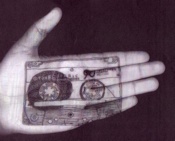
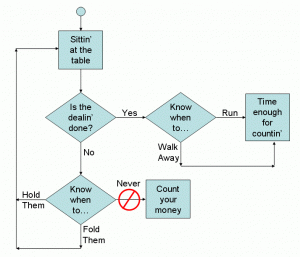
 As if you needed more evidence that Tom Waits has big ears,
As if you needed more evidence that Tom Waits has big ears, 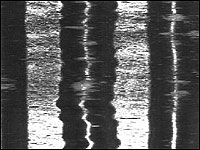 Is a record not spun a record not played? Dragging a needle across old, brittle vinyl records or wax cylinders can damage them — not something you want to do with rare historical recordings. At the Library of Congress, researchers have developed a scanner that can extract audio from records by scanning them digitally – no spinning required. Images are analyzed and transformed back into audible sound. “Stuck” records magically become unstuck, while physically broken records can be pieced back together with great results.
Is a record not spun a record not played? Dragging a needle across old, brittle vinyl records or wax cylinders can damage them — not something you want to do with rare historical recordings. At the Library of Congress, researchers have developed a scanner that can extract audio from records by scanning them digitally – no spinning required. Images are analyzed and transformed back into audible sound. “Stuck” records magically become unstuck, while physically broken records can be pieced back together with great results. 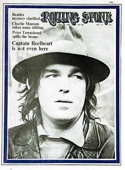 Budding guitarists (hell, all guitarists), take note: Guitar music is church, and there are ten commandments you gotta internalize if you want that axe to say something that will raise souls to the ether. Prophet / spiritual leader / ghost dancer Captain Beefheart, whose voice allegedly once destroyed a $1200 Telefunken microphone, saw (sawed?) through the blues, took them to metaphysical planes, twisted them up in old socks and dish rags, made your spine vibrate with surrealistic pleasure.
Budding guitarists (hell, all guitarists), take note: Guitar music is church, and there are ten commandments you gotta internalize if you want that axe to say something that will raise souls to the ether. Prophet / spiritual leader / ghost dancer Captain Beefheart, whose voice allegedly once destroyed a $1200 Telefunken microphone, saw (sawed?) through the blues, took them to metaphysical planes, twisted them up in old socks and dish rags, made your spine vibrate with surrealistic pleasure. 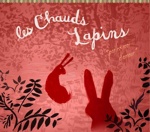
 Les Chaud Lapins, which translates literally as “The Hot Rabbits” or figuratively as “The Super Turned-On Rabbits” (those French are always turned on!), have a new recording –
Les Chaud Lapins, which translates literally as “The Hot Rabbits” or figuratively as “The Super Turned-On Rabbits” (those French are always turned on!), have a new recording –  A friend took his nine-month-old son to the local record store recently, muttering something like “I’ve got to teach him early about the importance of buying music, rather than downloading.” “For copyright reasons or tangibility reasons?,” I asked. “Neither,” he responded, “It’s about getting all the information.” He was talking audio aesthetics — preserving maximum data in the recordings you own, rather than paying for convenience with aesthetically diminished, massively compressed audio. I respect that, but wonder if there will be any CDs left to buy by the time our kids have their own allowances.
A friend took his nine-month-old son to the local record store recently, muttering something like “I’ve got to teach him early about the importance of buying music, rather than downloading.” “For copyright reasons or tangibility reasons?,” I asked. “Neither,” he responded, “It’s about getting all the information.” He was talking audio aesthetics — preserving maximum data in the recordings you own, rather than paying for convenience with aesthetically diminished, massively compressed audio. I respect that, but wonder if there will be any CDs left to buy by the time our kids have their own allowances. I knew from repeated experimentation — and subsequent disappointment — that Van Morrison records had stopped being worth owning sometime between Veedon Fleece and Wavelength — and even that mid-70s block was a marginal, iffy period. To have a truly psychedelic experience with Van required a large supply of candles and a Mexican
I knew from repeated experimentation — and subsequent disappointment — that Van Morrison records had stopped being worth owning sometime between Veedon Fleece and Wavelength — and even that mid-70s block was a marginal, iffy period. To have a truly psychedelic experience with Van required a large supply of candles and a Mexican